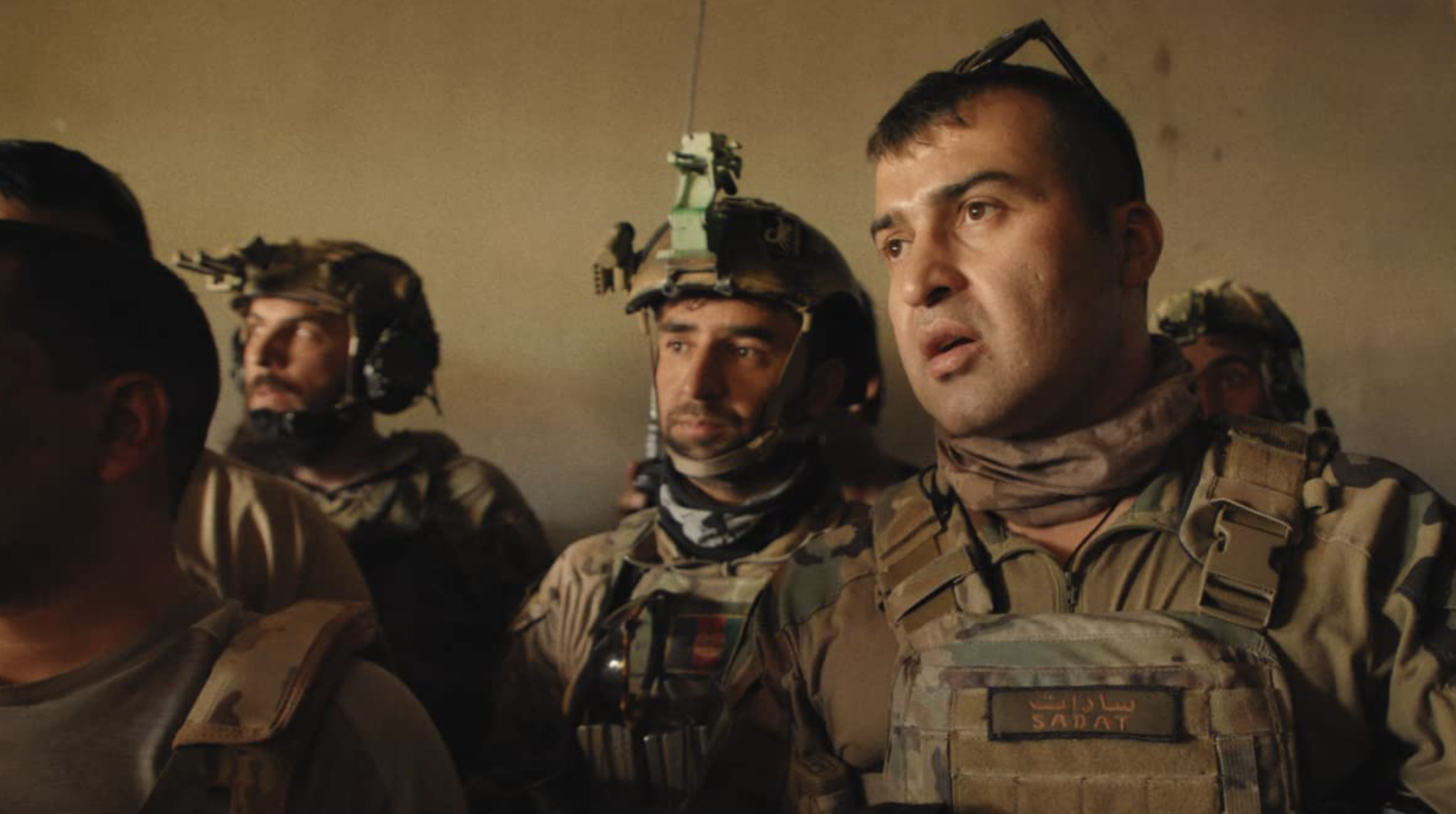As Taliban predictably tightens grip on Afghanistan new documentary “RETROGRADE” goes back over the last nine months of U.S. presence | OUR INTERVIEW WITH FILMMAKER MATTHEW HEINEMAN
Matthew Heineman has taken his camera to some of the most dangerous places on earth. For “City of Ghosts” from 2017 he filmed those brave souls who dared to decry the Islamic State’s terror tactics in Syria. Heineman’s latest is “Retrograde,” which started out as a chronicle of the final battalion of Green Berets stationed in Afghanistan but became a record of a rushed U.S. exit, followed by a surge of Afghan refugees desperate to escape the Taliban’s resurgence.
Heineman says that on previous works like “The Trade” and “Cartel,” he’s attempted to take rather large, complicated issues such as illegal drug smuggling and “humanize them.” His mission was similar with the new film about the United States leaving Afghanistan over a year ago.
“I think it’s my job to create an empathetic connection between issues that feel distant and so far away but really aren’t,” Heineman told me recently as he was shuttling by car from one engagement to the next.
Heineman started work on “Retrograde” four years ago. His initial intent was to embed with the Green Berets in Afghanistan, whose trust had to be earned by the filmmaker.
“And by the time it happened, the story sort of morphed,” Heineman said. “It originally was supposed to be a story about the Green Berets deploying abroad, and by the time we actually landed in Afghanistan, it became clear this was probably the last U.S. deployment to Afghanistan.
“Through the prism of this deployment, we might be able to get a glimpse into the end of the longest war in U.S. history.”
Indeed, the early scenes of “Retrograde” show the camaraderie between the Green Berets and Afghan forces. When the order to return home comes in, the Americans are seen exploding unused ordnance, smashing computers and destroying any other materiel that in theory might find its way into enemy hands.
These are the absolute baddest of the badasses, and yet even these hardened warriors are seen barely keeping their emotions in check while hugging their Afghan colleagues goodbye.
With the Americans gone, and the government in Kabul set to fall to the Taliban, Heineman’s camera soon follows Afghan General Sami Sadat, who does what he can to rally his troops to fend off overwhelming odds. Heineman’s camera captures the chaos as the Taliban runs roughshod over the Afghan forces, which soon forces thousands of the hopeful to Hamid Karzai Airport seeking escape. Those who speak English beg for reprieve, and those who don’t plead with the soldiers guarding the airport to at least get their children to safety.
But they can only do so much and save so many. It’s heartbreaking to behold.
“It’s definitely the hardest film I’ve made thus far in my career—emotionally, logistically, physically,” Heineman said. “I think the key with this style of filmmaking is trying to put you, as audience members, in those rooms, in those helicopters to make it feel what it’s like to be there.
“But certainly there were tons of dicey situations and moments” of danger for the filmmaker, his crew and the military officials surrounding them, he said.
General Sadat is now living in exile in London. Heineman maintains contact with the Afghan soldier, whom Heineman said is still “processing” the tragic loss of the war to the Taliban and having had to flee his homeland.
“The title ‘Retrograde,’ as we learn in the film—and I learned making the film—is a military term for leaving a war zone. Something that has happened throughout history and will continue to happen long in the future,” Heineman said. “It also means moving backwards: We are where we were twenty years ago. Girls can’t go to school, women can’t go out without their faces covered. And it’s terribly, terribly sad.”
Asked why Americans, or anyone not living in Afghanistan, should care what happens there more than a year after the U.S. withdrawal, Heineman says it’s crucial to remember our allies who cannot escape the Taliban’s brutal rule.
“Obviously the war in Ukraine is one of the more important stories of our lifetime, but it has taken up so much of the oxygen around international news, and we seem to have forgotten about Afghanistan,” he said. “I hope that, among many things, this film reignites the conversation around this war, around the people that we left behind.”
“In some sense,” the filmmaker added, “the film is a document of this moment in history, and what can we learn from it?”
“Retrograde” is available on National Geographic, Disney+ and Hulu.
news via inbox
Nulla turp dis cursus. Integer liberos euismod pretium faucibua



